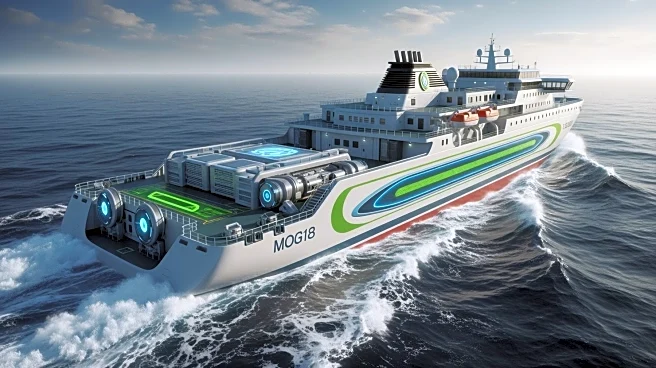What's Happening?
The International Maritime Organization (IMO) has made progress on its Net-Zero Framework following a week of closed-door meetings. The Intersessional Working Group on Reduction of Greenhouse Gas Emissions
from Ships managed to overcome previous disagreements and focus on key technical guidelines. Despite initial setbacks due to pressure from the United States and Saudi Arabia, the group worked on establishing the Governing Board and fundamental principles for the Net Zero Fund. The discussions also covered incentivizing energy transition, setting up the fund, and evaluating the lifecycle and sustainability of different fuels. Wind propulsion gained attention, with expectations of increased adoption in the coming year.
Why It's Important?
The progress made by the IMO is crucial for the global shipping industry's efforts to reduce greenhouse gas emissions. The framework aims to guide the industry towards achieving net-zero emissions, which is vital for combating climate change. The involvement of various countries and organizations indicates a collective commitment to addressing environmental concerns. However, the delay in formal decisions and the potential postponement of regulations until 2029 highlight the challenges in reaching consensus. The outcome of these discussions could significantly impact international trade, shipping costs, and environmental policies.
What's Next?
The IMO is scheduled to hold a two-part summit in April 2026, with the Marine Environment Protection Committee expected to finalize important decisions. Member states will reconvene in October 2026 to continue negotiations. The ongoing discussions will likely focus on refining the framework and addressing any remaining concerns. Stakeholders, including governments and environmental organizations, will be closely monitoring the developments to ensure that the framework aligns with global climate goals.










